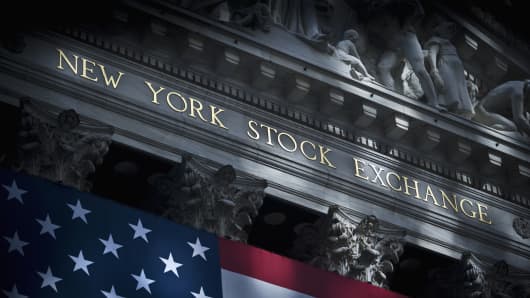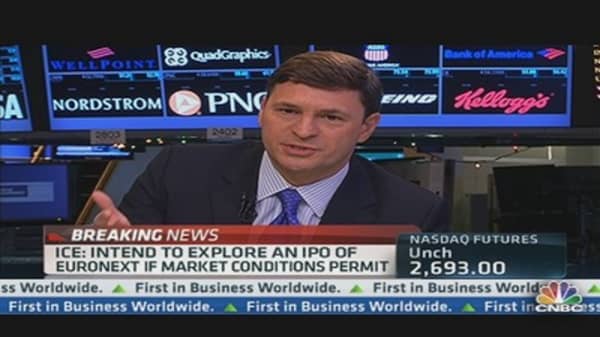The deal really was about concentrating derivatives trading. The combined company would have controlled 90 percent of the derivatives trading business in Europe. The "iconic" stock exchanges were really just an afterthought. Some even speculated that the actual businesses of trading shares would be spun out at a later date.
This latest deal is the same song by a new band.
The Atlanta-based ICE is a commodity derivatives house. It is acquiring NYSE Euronext in order to capture the revenue stream of Liffe, the London-based financial derivatives subsidiary that came under the New York Stock Exchange's control when it merged with Euronext. Financial history buffs will recall that Euronext itself was the product of a merger of the Amsterdam Stock Exchange, the Brussels Stock Exchange, and the Paris Bourse in 2000, which went on to acquire the London International Financial Futures and Options Exchange (yep, Liffe) the following year.
It's not that stocks or stock markets have become irrelevant. The total market capitalization of companies listed on American stock exchanges in north of $17 trillion. Thirty trillion dollars worth of shares were traded in 2010, which is the latest year I could find data.
But the role of the stock exchange is diminished.
That $30 trillion of shares traded is lower than it was in 2000, not even adjusted for inflation. The margins have been severely squeezed by competition and regulation. New listings are still very rare, even years after the financial crisis. It's a far better business to be a Getco, which is a stock trading outfit running its own "dark pool" version of an exchange, than to be a big, public stock clearinghouse.
(Read More: NYSE-ICE Deal Signals Stocks Are Not the Future: Pitt)
Oh yes. There will be lots of noise about the "iconic trading floor." No one wants to admit that the NYSE isn't even a tourist attraction any more—they haven't allowed tourists in the building for over a decade. But the return on investment for being a big public exchange is so low that I wouldn't be surprised if we find, a few years from now, that the NYSE has been sold off or spun out.





